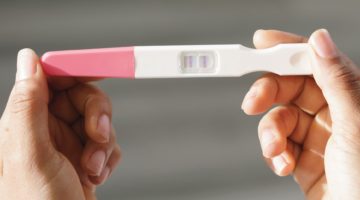 TALLAHASSEE — The Florida Department of Health has confirmed three cases of chikungunya fever in the state, with two of the infected people from the South Florida area.
TALLAHASSEE — The Florida Department of Health has confirmed three cases of chikungunya fever in the state, with two of the infected people from the South Florida area.
The health department said the infected people imported chikungunya fever to Florida from recent travel to the Caribbean. One case is a 30-year-old woman in Miami-Dade, one case is a 29-year-old woman from Broward, and the other is a 44-year-old woman in Hillsborough County.
Chikungunya fever, a viral mosquito borne disease, has made its way to Caribbean countries from Africa, Asia and islands in the Indian Ocean and Western Pacific. Travelers to these countries could carry the virus back to the United States and infect local mosquito populations, the department said.
“With a large number of people travelling to and from the Caribbean in Florida we have been monitoring for possible imported cases,” said Dr. Carina Blackmore, State Public Health Veterinarian and Deputy State Epidemiologist. “We encourage all Floridians to practice the drain and cover method to minimize mosquito exposure.”
Mosquitoes can transmit different viruses including chikungunya, West Nile and Eastern equine encephalomyelitis. Chikungunya, like dengue, can be transmitted from an infected human to an Aedes mosquito, which in turn can bite another human and pass along the disease.
Aedes mosquitoes are day biters which can lay eggs in very small water containers.
Symptoms of chikungunya usually begin three to seven days after being bitten by an infected mosquito and can include fever and severe joint pains often in hands and feet. Other symptoms can include headache, muscle pain, joint swelling or rash. Chikungunya fever does not often result in death, but some individuals may experience persistent joint pain.
There is currently no vaccine or medication to prevent chikungunya fever. If you feel that you may have contracted chikungunya, see your health care provider.
People at increased risk for severe disease include newborns exposed during delivery, adults over 65, and people with medical conditions such as high blood pressure, diabetes, or heart disease. A person infected with chikungunya should stay indoors as much as possible until symptoms subside to prevent further transmission.
To minimize exposure to mosquitos, practice the drain and cover method. Drain water from garbage cans, house gutters, pool covers, coolers, toys, flower pots or any other containers where sprinkler or rain water has collected and discard any items that may collect water. Clean bird baths and pet water bowls twice a week.
If you must be outside when mosquitoes are active, cover up. Wear shoes, socks, long pants and long sleeves. Mosquito repellent with DEET, picaridin, oil of lemon eucalyptus and IR3535 are effective. Use mosquito netting to protect children younger than 2 months.
For more information in Miami-Dade County, call 786-336-1276, in Broward County call 954-467-4784.
ON THE NET
floridahealth.gov/diseases-and-conditions/mosquito-borne-diseases/chikungunya.html












No Comment